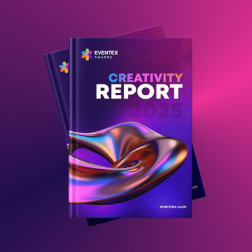Eventex industry trends: Micro meetings and how to organize them

With Kate Patay, Vice President, Global Engagement at Terramar, a DMC Network Company
While live events have returned in full swing, not everything is quite the same as it used to be, with people looking for more personalization and the opportunity to build meaningful connections. To that end, one of the trends highlighted in The Eventex 2024 Events Industry Trends Report concerns micro meetings. Kate Patay, Vice President, Global Engagement at Terramar, a DMC Network Company, who focuses primarily on key stakeholder gatherings, incentive trips, media, and FAMs (familiarization events), has given us a deeper glimpse into micro meetings and how to organize them.
Understanding micro meetings
Micro meetings, also commonly referred to as small-scale events, incentive trips, or FAMs, involve gatherings with a limited number of carefully vetted and selected participants, typically ranging from 10 to 50 individuals. These events are designed to foster deeper connections, meaningful discussions, and enhanced networking opportunities.
By focusing on quality over quantity, event planners can curate unique and memorable experiences tailored to the specific needs and goals of their clients and that particular gathering.
The advantages of micro meetings
- Personalized interactions — micro meetings allow for more personalized interactions, creating an environment where participants feel valued and heard. This fosters genuine connections and ensures that attendees leave with a sense of fulfillment.
- Increased engagement — with fewer participants, it becomes easier to maintain the audience's attention and encourage active participation. This leads to more meaningful discussions and a higher level of engagement throughout the event.
- Flexibility and adaptability — micro meetings offer flexibility in terms of venue selection and format. Whether it's a cozy retreat, a focused workshop, or a virtual gathering, event planners can adapt the setting to suit the objectives of the meeting.
- Cost-effectiveness — smaller-scale events often come with reduced costs, making them an attractive option for clients with budget constraints. Event planners can allocate resources more efficiently, focusing on providing a richer experience for each participant.
Organizing a successful micro meeting
Define objectives and goals
Clearly outline the purpose of the gathering and the specific goals you aim to achieve. This sets the foundation for the entire planning process, whether it’s for networking, bonding, dissemination of information, or incentive-based.
Curate a select guest list
Carefully choose participants based on their relevance to the meeting's objectives. Aim for a diverse group that can contribute different perspectives and insights.
Create an intimate atmosphere
Select a venue that enhances the feeling of intimacy. Consider factors such as seating arrangements, lighting, and decor to create a welcoming environment. “Surprise and delight” is the most important element and should be factored into every interaction the guests will experience from pre-arrival to departure and even a 3, 6, and 12-month touchpoint. The sense of community and belonging shouldn’t end when the guests depart. Instead, find ways to continue to capture that excitement until their next experience with you.
Facilitate meaningful interactions
You’ve hand-selected a guest list; now give them ways to foster genuine interaction together to create the most memorable experience possible. Incorporate interactive elements such as less-structured discussions, Q&A / “ask us anything” sessions, and collaborative activities. Encourage open communication to nurture connections among participants.
Utilize technology wisely
Leverage technology to enhance the entire meeting experience. This includes everything from an easy registration process to virtual networking tools, live polling, and interactive presentations to keep participants engaged if it’s information-based. Clearly communicate social posting expectations and tags/hashtags to get attendees participating, especially if you’re planning a FAM or incentive trip and want to create buzz for future events.
Provide thoughtful amenities
Pay attention to the details by offering thoughtful amenities that enhance the overall experience. This not only includes personalized welcome packages, various comfortable seating, and inclusive travel options, but local and sustainable offerings. Gifting lounges and CSR options are a great way to involve the local community and create as little waste as possible, oftentimes while supporting a meaningful charitable cause.
I always recommend working with foundations like the SEARCH Foundation where people can opt to donate instead of hands-on work or receiving amenities they will likely leave behind in their hotel rooms.
Food for thought
From allergies to sensitivities and more conscious styles of eating, taking all dietary restrictions into consideration will continue to create the inclusive environment we should all strive for at every event. Long gone are the days of the vegetarians in the group waiting 15 extra minutes to be served an entree where the main protein was simply removed, instead, dishes that speak to the local cuisine and are high-quality versions that include alternative protein and vegetable sources are created before anyone needs to ask.
Work with the culinary team to provide alternatives to dairy, meats, and other items that cater to every palate. Pro tip: asking these questions, along with keeping open comments in your registration process can help you to get ahead of this and include that “surprise and delight” during every meal.
Capture and analyze feedback
Always follow up. Both positive and negative feedback are useful tools. Implement a system or designate an individual to gather insights from participants. Use this feedback to continuously improve future events and tailor them to evolving preferences.
In conclusion
Mastering micro meetings requires a strategic approach that prioritizes quality, engagement, and personalization. By understanding the advantages of small-scale events and implementing effective planning strategies, event planners can deliver extraordinary experiences that leave a lasting impression on participants. As the event industry continues to evolve, embracing the power of micro meetings is a key step towards staying ahead of the curve and not only meeting but exceeding client expectations.
Meaningful interactions
And if you are looking for a meeting to help you form meaningful connections, Eventex B2B Match is coming up on April 17-18, 2024.
Register now
.svg)
.svg)





.png)


%20(1).png)
.png)
.png)









